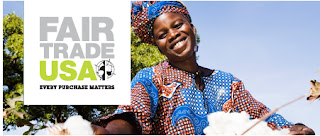| FEATURE/TRACK MY T |
Tracking the Journey of A T Shirt
As a responsible consumer, wouldn't it be great if one could know everything about his t shirt? Well, that is possible with an Anvil's website called Track My T!. One simply needs to type in the T Number (located on the left side panel of the inside of his Anvil t shirt) and one can get to know all about the journey of his T Shirt, from the farm land to the wardrobe.
The website tells about the farm, cotton gin, yarn spinner, textile mill, cutting and sewing process, distribution center etc. It also answers basic questions like how much cotton is needed to produce one t shirt, where does most of America’s cotton grow etc. It has a conventional farm image gallery and a conventional farm video to let readers know how does the process start. In fact, it has photo galleries and videos for every stage of production explaining things in a simple and organized manner.
Track My T helps consumers to know how and where exactly the process can be made more sustainable. For example, there is information about eco friendly screen printing, recycling etc. After going through the website, one would discover there are many things he or she did not know. For example, cardboard boxes, light bulbs, plastic cases and even the water used in the dyeing process can be recycled and how scraps of fabrics can be used to make more shirts.
The website is an effort from Anvil to enable the consumers buying its t shirts to know what a tracking label means, how was the t shirt produced, what was the estimated carbon footprint and how they can reduce their own carbon footprint.
To know more: http://www.trackmyt.com












